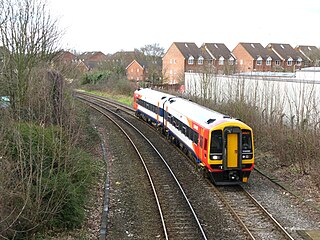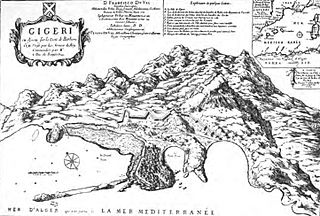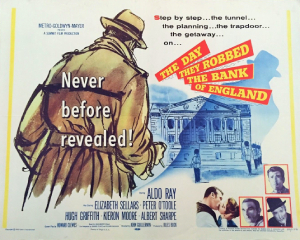Robert Norgate may refer to:
Robert Norgate may refer to:

Abgar V, called Ukkāmā, was the King of Osroene with his capital at Edessa.

George Smith was a pioneering English Assyriologist who first discovered and translated the Epic of Gilgamesh, one of the oldest-known written works of literature.
Ernst Karl Abbe HonFRMS was a German physicist, optical scientist, entrepreneur, and social reformer. Together with Otto Schott and Carl Zeiss, he developed numerous optical instruments. He was also a co-owner of Carl Zeiss AG, a German manufacturer of scientific microscopes, astronomical telescopes, planetariums, and other advanced optical systems.

Graeme Norgate is a British video game music composer who has composed music for a variety of video games developed by Rare. His first project at Rare was writing music for the Game Boy game, Donkey Kong Land. He also contributed to the soundtracks of Blast Corps and GoldenEye 007. Norgate was later an employee of Free Radical Design, the company was eventually bought out by Crytek and renamed to Crytek UK; Norgate retained the position of audio director after the company's buyout. Norgate later moved to Deep Silver Dambuster Studios after Crytek closed down Crytek UK.

Isabella of England was an English princess of the House of Plantagenet. She became Holy Roman Empress, Queen of Sicily, Italy and Germany from 1235 until her death as the third wife of Emperor Frederick II.

The Eastleigh–Romsey line is the railway line from Eastleigh to Romsey in Hampshire, England. At Eastleigh, trains join the South West Main Line for onward travel to Southampton. At Romsey most trains terminate. The line is not electrified and all trains are diesel-powered.
Odo II was the count of Blois, Chartres, Châteaudun, Beauvais and Tours from 1004 and count of Troyes and Meaux from 1022. He twice tried to make himself a king: first in Italy after 1024 and then in Burgundy after 1032.

Stanley Edward Lane-Poole was a British orientalist and archaeologist. Poole was from a famous orientalist family as his paternal grandmother Sophia Lane Poole, uncle Reginald Stuart Poole and great-uncle Edward William Lane were famous for their work in this field. His other great-uncle was Richard James Lane, a distinguished Victorian lithographer and engraver.

The Day They Robbed the Bank of England is a 1960 British crime film directed by John Guillermin. It was written by Howard Clewes and Richard Maibaum and based upon the 1959 novel of the same title by John Brophy.

Mordecai Cubitt Cooke was an English botanist and mycologist who was, at various points, a London schoolteacher, a Kew mycologist, curator at the India Museum, journalist and author,. Cooke was the elder brother of the art-education reformer Ebenezer Cooke (1837–1913) and father of the book illustrator and watercolour painter William Cubitt Cooke (1866–1951).

Robert Henry Charles, was an Irish Anglican theologian, biblical scholar, professor, and translator from Northern Ireland. He is known particularly for his English translations of numerous apocryphal and pseudepigraphal Ancient Hebrew writings, including the Book of Jubilees (1895), the Apocalypse of Baruch (1896), the Ascension of Isaiah (1900), the Book of Enoch (1906), and the Testaments of the Twelve Patriarchs (1908), which have been widely used. He wrote the articles in the eleventh edition of Encyclopædia Britannica (1911) attributed to the initials "R. H. C."
Michael Craig Norgate was a New Zealand accountant and business leader in agricultural processing, marketing and related areas. He had a career as chief executive officer (CEO) of dairy companies Kiwi Co-operative Dairies and Fonterra Co-operative Group, before consolidating the rural servicing industry through PGG Wrightson. His attempt to drive similar changes in the meat industry coincided with the advent of the global financial crisis and resulted in significant losses both for PGG Wrightson and his own private equity company.
Kate Norgate was a British historian. She was one of the first women to achieve academic success in this sphere, and is best known for her history of England under the Angevin kings and for coining the name Angevin Empire to describe their domains. She was self-educated in the Victorian era when higher education was generally denied to women. Her obituary in The Times described her as "the most learned woman historian of the pre-academic period."
Sir Roger Mostyn, 3rd Baronet, of Mostyn Hall, Holywell, Flintshire, was a Welsh Tory politician who sat in the English and British House of Commons for 25 years from 1701 to 1735.

Abdul Hameed masho gagar, also known as Abdul Hamid Baba, was an Afghan poet and Sufi figure.
Norgate is a surname. Notable people with the surname include:
Khadija, Khadeeja or Khadijah is an Arabic feminine given name, the name of Khadija bint Khuwaylid, first wife of the Islamic prophet Muhammad. In 1995, it was one of the three most popular Arabic feminine names in the Muslim world, along with Fatima and Aisha.
Williams and Norgate were publishers and book importers in London and Edinburgh. They specialized in both British and foreign scholarly and scientific literature.
Robert Norgate, D.D. was an English priest and academic in the second half of the sixteenth century.
Robert Norgate was a Canadian sculptor. His work was part of the sculpture event in the art competition at the 1948 Summer Olympics.